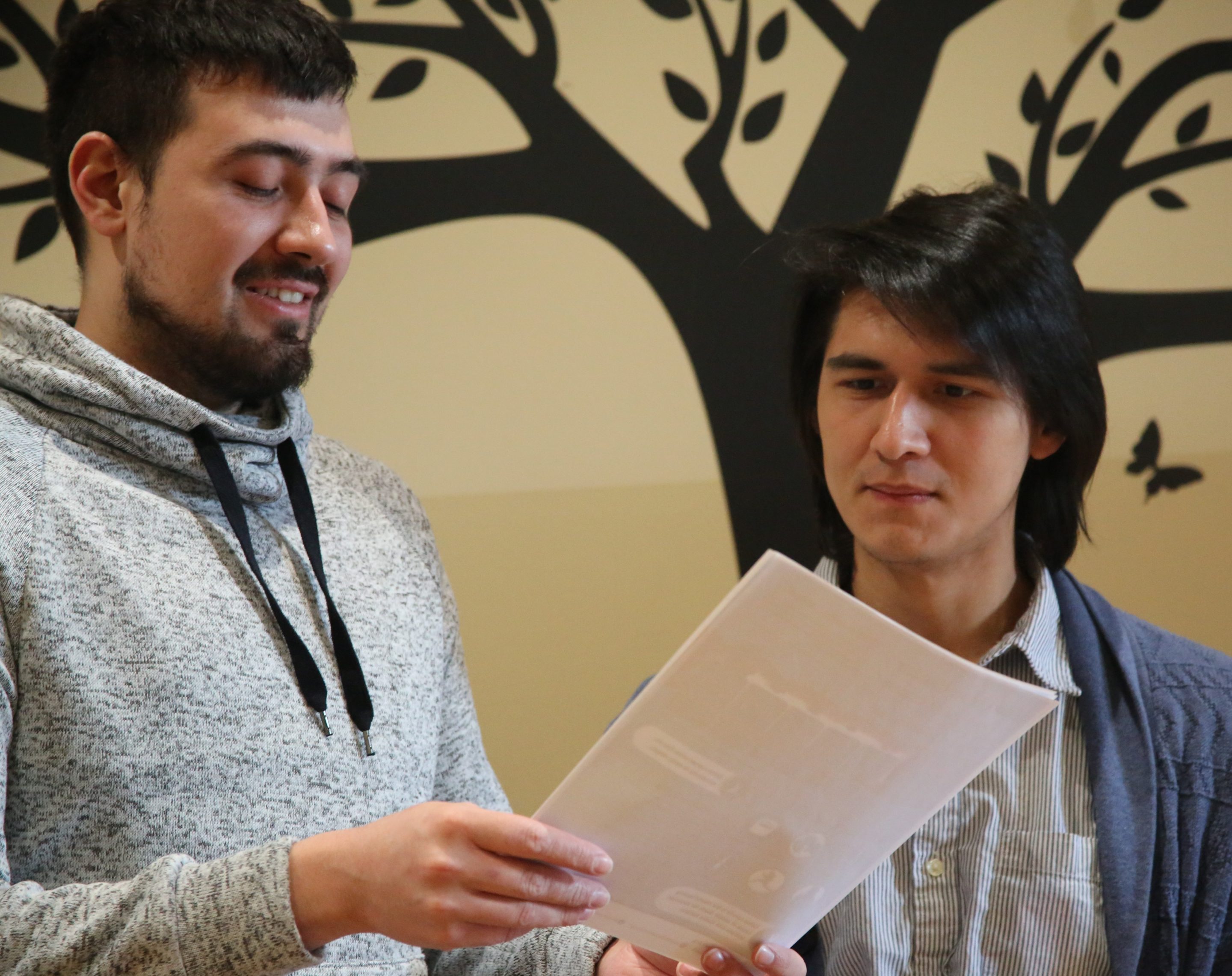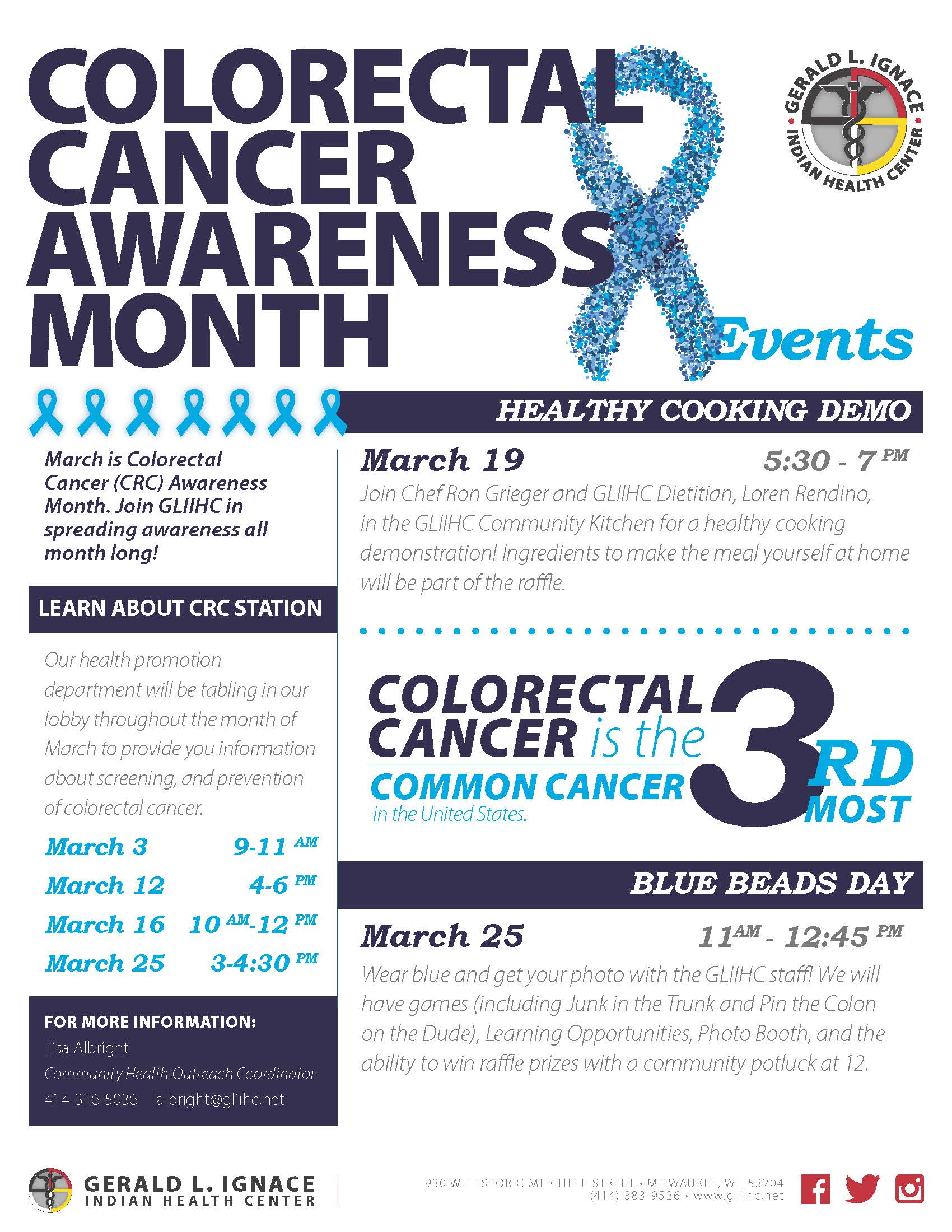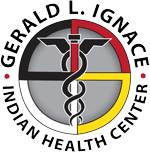
Colorectal cancer is a silent killer, the second most common cancer, and the second leading cause of cancer deaths among American Indian/Alaska Natives.
Typically, you have no symptoms – until it’s too late.
“It is a silent killer and it is under screened,” said Jessica Martinez, a Gerald L. Ignace Indian Health Center’s (GLIIHC) Community Health Worker. “The cancer is quietly growing by itself and we are giving it all the time it needs to grow by not getting screened and not getting tests.”
The solution? Education.
“People need to know that colorectal cancer is preventable,” says GLIIHC Registered Dietitian Loren Rendino, who heads a team of Community Health Care Workers committed to educating our community about colorectal cancer.
“Screenings are an important part of the fight against colorectal cancer. Even if you don’t have symptoms our Indigenous people must be diligent with regular screenings starting at the age of 50,” says Rendino, GLIIHC’s registered dietitian/nutritionist.
“Most colon cancers start as small noncancerous clumps of cells called polyps. Without treatment, polyps may turn cancerous. She urges people to follow these 7 Cancer Prevention Tips:
- Maintain a healthy weight
- Limit calorie-dense nutrient deficient foods (sugars, solid fast, deserts, desserts)
- Eat fruits, vegetables, whole grains and legumes
- Moderate mean portions
- Eat whole foods
- Limit alcohol intake
- Eat the rainbow, foods of every color.
“It is a silent killer and it is under screened,” said Jessica Martinez, a Gerald L. Ignace Indian Health Center’s (GLIIHC) Community Health Worker. “The cancer is quietly growing by itself and we are giving it all the time it needs to grow by not getting screened and not getting tests.”
GLIIHC Community Health Worker Ranier Posselt said one hurdle to overcome is that colorectal cancer is often a difficult subject for people to discuss.
“Although an uncomfortable subject, the education about ways to prevent and detect colorectal Cancer are key to fighting the disease,” Posselt said.
In fact, Posselt, Martinez and GLIIHC Community Health Worker Nicolas Alamo, have planned a month of activities to encourage colleagues and clients to learn more and share information about Colorectal Cancer.
“We will be in the GLIIHC lobby throughout the month of March to provide you information about screening and prevention of colorectal cancer,” Alamo said.
- March 12 – Learn About CRC Station, Lobby of GLIIHC
- March 16 – Learn About CRC Station, Lobby of GLIIHC
- March 19 – Live Cooking Event with Chef Ron & Loren Rendino
- March 25 – #bluebeadsday at Gerald L. Ignace Indian Health Center
Contact Loren Rendino if you have questions at (414) 316-5005. Better yet, come to GLIIHC and join in on the slated March Activities around Colorectal Cancer. Visit our website for schedule of events or follow us on facebook.

